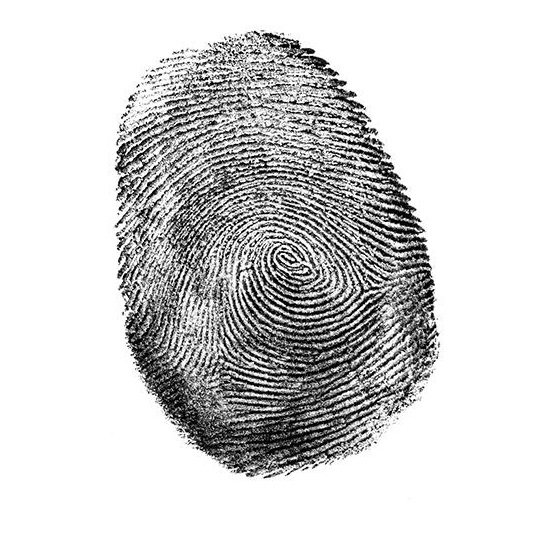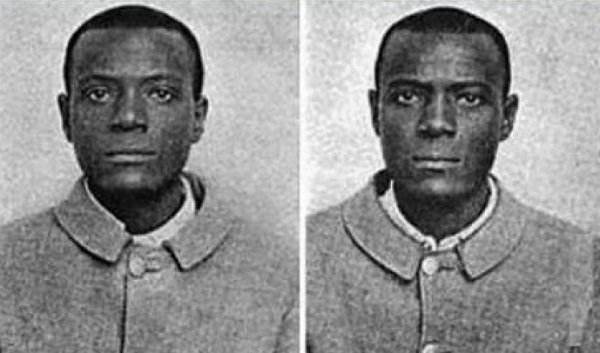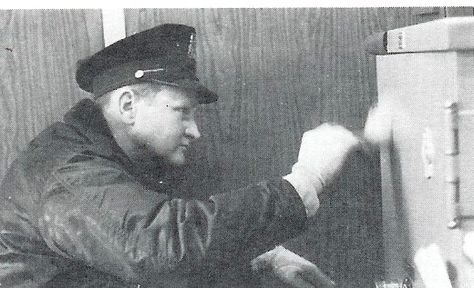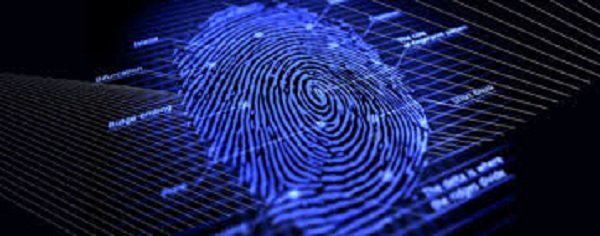It seems a bit bizarre to imagine that there was ever any other method of identification but when you really look at how small the differences are between one person's prints and another's, it is kind of easy to understand why it took so long. It was introduced to the St.Louis police department today 115 years ago.
The year was 1904

source
Prior to St. Louis adapting this approach, the world was already quite aware of the unique nature of a person's fingerprints, but it hadn't yet been established that there are no two set of identical prints (which is something I'm still a little apprehensive to believe.) However, their extremely small nature didn't make using them as a form of identification terribly feasible in most situations.
Prior to 1904 police departments categorized people based on photographs, height, and by measuring bony parts of the body or "Bertillon measurements" and this had normally proven sufficient.... until it didn't.

source
In Leavenworth Prison in Kansas in 1903 a man named Will West was being admitted and all the measurements were taken. As luck would have it, the prison already housed a criminal by the name of William West. The men were virtually identical in every way including their Bertillon measurements. Their individual mugshots are above and I promise you, that is not a shot of the same person twice. Will and William were not related by blood in any way that could be determined but there was some suspician that they were identical twins separated at birth. The Williams duo were not lying, they honestly didn't know one another.

source
And that's how the story goes. Someone came over from Scotland Yard to train the St. Louis police force how to properly categorize fingerprints and the unique identifier, at least from a criminology point of view, was put into use in St. Louis. It was such a success that this practice quickly spread to a national level and the eventual need for centralized "database" was a major driving force in the creation of the FBI.
An actual nation-wide and easily accessible central storage record was not established until the early 1980's and even then it didn't have any real widespread use because well, computers were still pretty shit back then. These days hundreds of millions of fingerprints are searchable online by law-enforcement agencies in a number of minutes. There are 300,000 searches conducted daily.

source
I'm one of those people that doesn't really like to be part of the system but when i was a kid I remember that every school kid got to go on a free "field trip" to a local police station. It was a lot of fun and we enjoyed it, however, all of "got to have our fingerprints taken!" in what i can only now believe was a really inventive way for the police force to get everyone on file in a kind of devious manor.
There is no denying the power of this unique identifier and recently the existence of this bio metric technology becoming more accessible is actually becoming problematic for me personally. Thailand has recently introduced a fingerprint scan that is part of every person's ability to enter the country - you can not refuse to be part of it. Therefore, all the people like me that simply flew home to get a new passport whenever they started to have "too many stamps" can no longer use this workaround.
Despite the fact that all nations combined have billions of fingerprints on their own, there isn't a tremendous amount of information that is shared across nations. Interpol is the only agency that freely provides this information to member nations and their database contains the bio-metric data of a mere 120,000 people - normally the most wanted and feared criminals on the planet.
Someone was always going get the ball rolling on this eventually but St. Louis was the first and it was inspired by the truly unique situation involving Will and William West!
The first fingerprinting filing system was actually introduced a decade earlier by Provincial Police of Buenos Aires in Argentina, thanks to one of its officials, Juan Vucetich a.k.a. Ivan Vučetić, Croatian immigrant who is often referenced as one of the most important forensic science pioneers and the father of modern fingerprinting.
Downvoting a post can decrease pending rewards and make it less visible. Common reasons:
Submit
oh yes, there was a lot of fingerprint business going on and it can be traced back to even 14th century Persia. The St. Louis think simply marked the beginning of a mass exodus from the Bertillon system, which had been used by police forces all over until the very unique case of Will and Will.
Downvoting a post can decrease pending rewards and make it less visible. Common reasons:
Submit
Hello @gooddream, been a while there, in my opinion the fact that it's been said that people can't have same print and not even identical twins makes me really wonder how such smell thumb can contain billions of pattern but I guess it's unexplainable really. In the case of William and will they could be dopplegangger lol don't you think?
Downvoting a post can decrease pending rewards and make it less visible. Common reasons:
Submit
Never thought an identical people in appearance was the reason finger prints became the go to method of identifying people. Those two wills look totally alike.
Downvoting a post can decrease pending rewards and make it less visible. Common reasons:
Submit
Wow, that is really interesting. I think I have to agree with you that mathematically it seems pretty impossible that there are no two prints that are the same. I think eventually we will see some duplication or at least an instance where the technology or human eye can't discern the difference. Working for public education and doing jobs on the side for the local police department, I have had my fingerprints taken more times than I can count!
Downvoting a post can decrease pending rewards and make it less visible. Common reasons:
Submit
Still can't believe the UK don't have everyones fingerprints on record. Invasion of privacy they say and maybe if you have something to hide. I would be all for it as it makes solving crimes a hell of a lot easier.
Downvoting a post can decrease pending rewards and make it less visible. Common reasons:
Submit
i was stunned when i moved to Thailand that they didn't even have a fingerprint database... actually their police force is missing an awful lot of the technology that we just kind of assumed was everywhere coming from a western environment
Downvoting a post can decrease pending rewards and make it less visible. Common reasons:
Submit
Those Williams do look alike!! When I was younger I constantly got mistaken for other people. I also once met someone that even I could see looked like me haha. He was a little taller though, so If he ever did something against the law, the height was there as a difference.
Downvoting a post can decrease pending rewards and make it less visible. Common reasons:
Submit
Very interesting story!
Downvoting a post can decrease pending rewards and make it less visible. Common reasons:
Submit
Howdy gooddream! What an interesting history lesson! As accurate as fingerprints are, they are moving to facial recognition and other things, which sounds more alarming to me. I guess fingerprints don't change when you grow up or they wouldn't be doing your classes's when you were little kids.
Great mug shots of the William Wests! I wonder if they were able to get to know each other?
Downvoting a post can decrease pending rewards and make it less visible. Common reasons:
Submit
I love the variety of your posts - movie reviews, TV shows, even history.

One of my favorite history bloggers is Dublin journalist and novelist David Lawlor (not at Steemit yet but Twitter, yes) - #historywithatwist is his blog.
historywithatwist.wordpress.com
I'll tag him when I tweet the link to this - and maybe convince him to try Steemit bloggin!
Downvoting a post can decrease pending rewards and make it less visible. Common reasons:
Submit